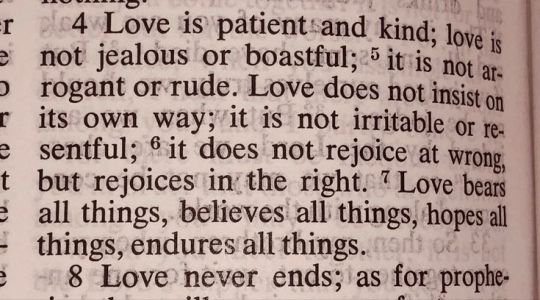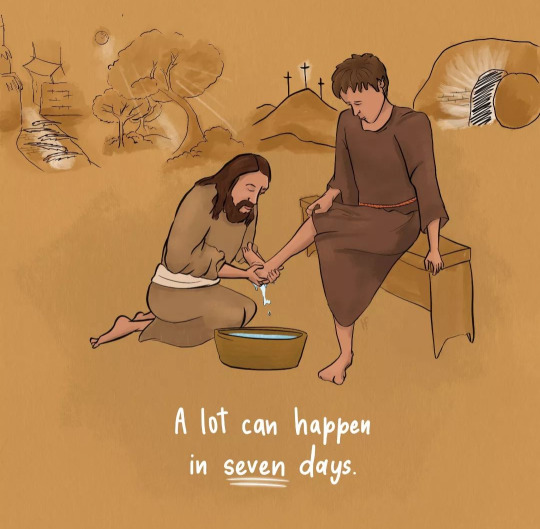#Ephesians 2:11-22
Text

Followers Now Become the Body of Christ
11 Do not forget that at one time you did not know God. The Jews, who had gone through the religious act of becoming a Jew by man’s hands, said you were people who do not know God. 12 You were living without Christ then. The Jewish people who belonged to God had nothing to do with you. The promises He gave to them were not for you. You had nothing in this world to hope for. You were without God.
13 But now you belong to Christ Jesus. At one time you were far away from God. Now you have been brought close to Him. Christ did this for you when He gave His blood on the cross. 14 We have peace because of Christ. He has made the Jews and those who are not Jews one people. He broke down the wall that divided them. 15 He stopped the fighting between them by His death on the cross. He put an end to the Law. Then He made of the two people one new kind of people like Himself. In this way, He made peace. 16 He brought both groups together to God. Christ finished the fighting between them by His death on the cross. 17 Then Christ came and preached the Good News of peace to you who were far away from God. And He preached it to us who were near God. 18 Now all of us can go to the Father through Christ by way of the one Holy Spirit. 19 From now on you are not strangers and people who are not citizens. You are citizens together with those who belong to God. You belong in God’s family. 20 This family is built on the teachings of the missionaries and the early preachers. Jesus Christ Himself is the cornerstone, which is the most important part of the building. 21 Christ keeps this building together and it is growing into a holy building for the Lord. 22 You are also being put together as a part of this building because God lives in you by His Spirit.
— Ephesians 2:11-22 | New Life Version (NLV)
New Life Version Holy Bible Copyright © 1969, 2003 by Barbour Publishing, Inc.
Cross References: Psalm 118:22; Psalm 148:14; Proverbs 9:1; Isaiah 9:6; Isaiah 14:1; Isaiah 57:19; Ezekiel 47:22; Micah 5:5; John 10:16; John 14:6; Acts 2:39; Romans 2:26,27 and 28; Romans 5:2; Romans 11:17; 1 Corinthians 3:9; 1 Corinthians 3:16; 1 Corinthians 6:16; 1 Corinthians 10:17; 2 Corinthians 5:18; Galatians 3:28; Galatians 6:10; Galatians 6:15; Ephesians 4:15; Philippians 3:20
#Jew#Gentiles#reconciled#unity#Christ#the Church#Ephesians 2:11-22#The Epistle of Ephesians#New Testament#NLV#New Life Version Bible#Barbour Publishing Inc.
11 notes
·
View notes
Text
"YES, GOD CAN STILL USE YOU!"
Ephesians 2:10, “For we are His workmanship [His own master work, a work of art], created in Christ Jesus [reborn from above – spiritually transformed, renewed, READY TO BE USED] for good words, which God prepared [for us] beforehand [taking paths which He set], so that we would walk in them [living the good life which He prearranged and made ready for us].” (AMP)
When David first arrived at…

View On WordPress
#1 Samuel 10:22#1 Timothy 4:12#2 Chronicles 24:1#2 Kings 5:1-3#2 Timothy 2:20#2 Timothy 2:21#Acts 20:9-11#Believers#Bible Study#Church#Colossians 3:22-25#Encouragement#Ephesians 2:10#Esther 4:14#Faith#Genesis 41:41-43#God#Hebrews 13:6#Holy Spirit#Isaiah 43:18-19#Isaiah 6:8#Jeremiah 18:1-6#Jesus Christ#Joseph#Luke 1:38#Matthew 25:23#Numbers 33:39#Philippians 3:12-14#Philippians 4:13#Proverbs 18:16
3 notes
·
View notes
Text
Men and Women in Creation
14 Points from Genesis that emphasize male-female differentiation
What does it mean to be a man? What does it mean to be a woman?
While it seems that this discussion is a fruitless endeavor that results in people only stating their personal preferences, we do find an objective perspective given to us in the first three chapters of Genesis that demonstrate the essential equality of men and…

View On WordPress
#1 Corinthians 11:3-11#1 Timothy 2:12-15#complementarianism#Ephesians 5:22-33#feminism#Genesis 1-3#headship and submission#masculinity
2 notes
·
View notes
Text
Lord, Don't Give Up on Me
Context: Psalm 119: 1-176
Focus: Psalm 119: 1-8
“I will obey your decrees. Please don’t give up on me!” Psalm 119:8 NLT
(my emphasis)
Those who follow the instructions of the Lord are blessed with the joy of His presence. Those who seek Him with all their hearts will find Him. They do not compromise with evil but walk His path of righteousness. You commanded us to keep Your law and our desire…

View On WordPress
#2 Timothy 2:13#Don&039;t Give Up#Ephesians 2: 8-9#God&039;s faithfulness#God&039;s Work in Us#Matthew 22: 37-40#Our righteousness or God&039;s?#Philippians 1:6#Psalm 119:8#Psalm 138:8#Psalm 38:21#Psalm 51: 11#Psalm 71:18#Psalm 71:9#Romans 7: 21-25
0 notes
Text
Church notes - June, July 2023
On LiveJournal: https://fardell24.livejournal.com/591059.html
On Dreamwidth: https://fardell24.dreamwidth.org/791673.html
#church#ecclesiastes#ecclesiastes 4#ephesians#ephesians 2#exodus 11#genesis 2#gospel of john#gospel of matthew#john 17#matthew 22#matthew 6#nehemiah 3#romans 12
0 notes
Text
Are You Free?
We have freedom in Christ Jesus, so if our freedom here, where we are now on this side of heaven, if that liberty begins to erode, we still have hope, because nothing can separate us from God and the freedom we have in Jesus.
Are You Free?
Does your nation know the blessing of freedom? Are you free? Are You One Nation Under God With Liberty And Justice For All? Freedom! Human Beings… what a fragile freedom we have because people, with no power higher than self want to steal it. But we STILL have it, we were born to be free with the liberty of choice. God choose His Servant Warriors to fight for our God given…

View On WordPress
#1 John 2:15#1 John 2:3#1 John 4:16-10#1 Peter 2:1-25#2 Peter 3-5#3 John 1:11#Be God’s#be so#Beach#Beach Devotional#Christian#Creator’s Male And Female#Enlisted By God#Ephesians 2:19-22#Ephesians 5:1-33#faith#flag#For Christ#For God#Forever Free#Freedom#Freedom Of Choice#Freedom Of Speech#Galatians 1:4#God#God Supremacy#God with us#God&039;s Authority#God&039;s Image#God&039;s justice
0 notes
Text
Infinite Dreams Deserve Results from an Infinite God
Infinite Dreams Deserve Results from an Infinite God
Robert Browning said, “Ah, but a man’s reach should exceed his grasp, or what’s a heaven for?” Human dreams are unlimited. They are infinite, if you will. Have you ever wondered why, of all the animals, only man has the capacity for infinite dreams?
In Paul’s letter to the Ephesians, he prays about the possibility of connecting finite man to an infinite God. If you stop to consider what that…

View On WordPress
0 notes
Photo

The Letters of Paul the Apostle to the Gentiles
Paul was a member of the Jewish Pharisees in the 1st century CE, who experienced a revelation of the resurrected Jesus Christ. In this vision, Jesus commissioned him to be the apostle (herald) to the Gentiles (non-Jews). After this experience, he traveled widely throughout the Roman Empire, spreading the "good news" that Jesus would soon return from heaven and usher in the kingdom of God on earth.
In the New Testament, we have 14 letters traditionally assigned to Paul, but the scholarly consensus now recognizes that of the 14, seven were written by Paul:
1 Thessalonians
Galatians
Philemon
Philippians
1 & 2 Corinthians
Romans
2 Thessalonians, Ephesians, and Colossians remain debatable among some scholars. The other major letters (1 &2 Timothy and Titus) were most likely written by disciples of Paul’s, using his name to carry authority. The letters that have survived range between 52 and 60 CE, and although we cannot pinpoint when Paul’s letters were collected, Clement, a bishop in Rome in the 90s CE, quoted from 1 Corinthians.
The Nature of the Letters
We understand these letters to be circumstantial. They were not written as systematic theology or as treatises on Christianity. The letters are responses to specific problems and circumstances as they arose in his communities. Paul spent time in cities establishing a group and then moved on. He received letters and sometimes reports with detailed questions or advice on how to settle conflicts. Unfortunately, when Paul’s letters were saved and circulated, the original letters from the communities were not preserved. The reconstruction of the original problems can only be determined by Paul’s responses.
Known as the most famous convert in history (from the Acts of the Apostles), Paul did not actually undergo conversion. Conversion assumes changing from one religious system to another, but at the time, there was no Christian system for him to convert to. Paul himself was ambiguous when it came to his self-identity:
To the Jews I became like a Jew... To those under the law I became like one under the law (though I myself am not under the law) ... To those not having the law I became like one not having the law (though I am not free from God’s law but am under Christ’s law) ... I have become all things to all people. (1 Corinthians 9:20-22)
In relation to what happened to Paul, it is better to follow what he says, in that he was 'called'. This is the tradition of the way in which the Prophets of Israel were called to their individual missions.
I want you to know, brothers and sisters, that the gospel I preached is not of human origin. I did not receive it from any man, nor was I taught it; rather, I received it by revelation from Jesus Christ. (Galatians 1:11-12).
Paul argued that this experience gave him as much authority as the original circle in Jerusalem (Peter, James, and John). Paul’s call to be the Apostle to the Gentiles was shocking because, as he freely admitted, he had previously "persecuted the church of God" (Galatians 1:13). He never really explained what he did, nor why he did it. It is in Paul’s letters that the name Jesus is combined with Christ, the Greek for the Hebrew messiah ("anointed one"). Understood as a title, "Jesus the Christ", it became common as a phrase that indicated his identity and function.
Continue reading...
74 notes
·
View notes
Text
how to read the Bible

this is in order!
1. John
2. Mark
3. Matthew
4. Luke
5. Genesis
6. Exodus
7. Leviticus
8. Numbers
9. Dueteronomy
10. Romans
11. Galatians
12. Colossians
13. Proverbs
14. Ecclesiastes
15. Job
16. 1 Peter
17. 1 Corinthians
18. 2 Corinthians
19. Ephesians
20. Philippians
21. 1 Thessalonians
22. 2 Thessalonians
23. 1 Timothy
24. 2 Timothy
25. James
26. 2 Peter
27. 1 John
28. 2 John
29. 3 John
30. Jude
31. Psalms
32. Joshua
33. Judges
34. 1 Samuel
35. 2 Samuel
36. 1 Kings
37. 2 Kings
38. 1 Chronicles
39. 2 Chronicles
40. Ezra
41. Nehemiah
42. Jeremiah
43. Lamentations
44. Ezekiel
45. Joel
46. Amos
47. Obadiah
48. Nahum
49. Habakkuk
50. Zephaniah
51. Haggai
52. Zechariah
53. Malachi
54. Micah
55. Hosea
56. Luke
57. Esther
58. Jonah
59. Song of Solomon
60. Acts
61. Titus
62. Philemon
63. Hebrew
64. Isaiah
65. Daniel
66. Revelation
57 notes
·
View notes
Text

Parable of the Prodigal Son:
Jesus conveyed a profound message about forgiveness, redemption, and the boundless love of God. Let's reframe the narrative within this Christian context, drawing from Luke 15:11-32, and infuse it with additional biblical insights.
A certain man had two sons. The younger son asked for his share of the inheritance and journeyed to a distant land where he squandered his wealth in reckless living. Soon, a severe famine swept through the land, and the young man found himself in dire need.
In his desperation, he sought employment feeding pigs, a job that symbolized his degradation and distance from his upbringing. Yet, in his lowest moment, he came to his senses and decided to return to his father, confessing his sins and seeking forgiveness.
His father, filled with compassion, ran to greet him while he was still far off. Instead of condemnation, the father embraced his wayward son, clothing him in the finest robe and celebrating his return with a lavish feast.
Meanwhile, the older son, who had remained obedient and dutiful, grew resentful at the extravagant welcome given to his brother. But the father, ever merciful, reminded him of the importance of forgiveness and reconciliation.
This parable echoes the essence of divine mercy and the unconditional love of God. Just as the father welcomed back his repentant son, so too does our Heavenly Father eagerly await our return, ready to forgive and restore us to fellowship with Him.
The Prodigal Son reminds us of the importance of humility, repentance, and forgiveness in our Christian journey. It challenges us to examine our attitudes towards others, particularly those who have strayed from the path, and to emulate God's boundless love and compassion.
Broader context:
Parable of the Prodigal Son (Luke 15:11-32):
This is the main passage where the parable is found.
Forgiveness and Reconciliation:
Matthew 18:21-22 - Jesus teaches about forgiveness.
Colossians 3:13 - Encouragement to forgive as the Lord forgave you.
Ephesians 4:32 - Be kind and compassionate, forgiving one another.
Luke 6:37 - Judge not, and you will not be judged; forgive, and you will be forgiven.
God's Unconditional Love:
Romans 8:38-39 - Nothing can separate us from the love of God.
1 John 4:16 - God is love, and whoever abides in love abides in God.
Romans 5:8 - God shows his love for us in that while we were still sinners, Christ died for us.
Ephesians 2:4-5 - But God, being rich in mercy, because of the great love with which he loved us, even when we were dead in our trespasses, made us alive together with Christ.
Repentance and Restoration:
Acts 3:19 - Repent therefore, and turn back, that your sins may be blotted out.
Joel 2:13 - Return to the Lord your God, for he is gracious and merciful, slow to anger, and abounding in steadfast love.
Isaiah 55:7 - Let the wicked forsake his way, and the unrighteous man his thoughts; let him return to the Lord, that he may have compassion on him, and to our God, for he will abundantly pardon.
2 Corinthians 5:17 - Therefore, if anyone is in Christ, he is a new creation. The old has passed away; behold, the new has come.
Celebration in Heaven over Repentance:
Luke 15:7 - Just so, I tell you, there will be more joy in heaven over one sinner who repents than over ninety-nine righteous persons who need no repentance.
Luke 15:10 - Just so, I tell you, there is joy before the angels of God over one sinner who repents.
God's Provision and Restoration:
Philippians 4:19 - And my God will supply every need of yours according to his riches in glory in Christ Jesus.
Psalm 23:1 - The Lord is my shepherd; I shall not want.
Matthew 6:26 - Look at the birds of the air: they neither sow nor reap nor gather into barns, and yet your heavenly Father feeds them. Are you not of more value than they?
God's Sovereignty and Compassion:
Psalm 103:8 - The Lord is merciful and gracious, slow to anger and abounding in steadfast love.
Lamentations 3:22-23 - The steadfast love of the Lord never ceases; his mercies never come to an end; they are new every morning; great is your faithfulness.
James 5:11 - Behold, we consider those blessed who remained steadfast. You have heard of the steadfastness of Job, and you have seen the purpose of the Lord, how the Lord is compassionate and merciful.
Questions:
How does the parable of the Prodigal Son reflect God's unconditional love and forgiveness?
In what ways do we, like the older brother, struggle with forgiveness and harbor resentment towards others?
How can we cultivate a spirit of compassion and reconciliation in our interactions with those who have gone astray?
What steps can we take to emulate the father's example of mercy and grace in our daily lives?
Let us pray:
Heavenly Father, we thank you for the timeless wisdom and grace revealed in the parable of the Prodigal Son. Teach us to extend forgiveness, show compassion, and embrace reconciliation in our relationships, reflecting your boundless love for all your children. Amen.
#ProdigalSon#DivineMercy#Forgiveness#UnconditionalLove#Redemption#Parable#ChristianTeaching#Compassion#Reconciliation#HeavenlyFather#Grace#Mercy#BiblicalWisdom#christianity#christian faith#faith#jesus christ#bible verse#christianlife#faith in jesus#bible scripture#bible#christ#christianty#bible study#salvation#bible quote
20 notes
·
View notes
Text

The Proverbs of Solomon
1 The wise sayings of Solomon, the son of David, king of Israel.
2 To have knowledge of wise teaching; to be clear about the words of reason:
3 To be trained in the ways of wisdom, in righteousness and judging truly and straight behaviour:
4 To make the simple-minded sharp, and to give the young man knowledge, and serious purpose:
5 (The wise man, hearing, will get greater learning, and the acts of the man of good sense will be wisely guided:)
6 To get the sense of wise sayings and secrets, and of the words of the wise and their dark sayings.
7 The fear of the Lord is the start of knowledge: but the foolish have no use for wisdom and teaching.
Advice to a Son
8 My son, give ear to the training of your father, and do not give up the teaching of your mother:
9 For they will be a crown of grace for your head, and chain-ornaments about your neck.
10 My son, if sinners would take you out of the right way, do not go with them.
11 If they say, Come with us; let us make designs against the good, waiting secretly for the upright, without cause;
12 Let us overcome them living, like the underworld, and in their strength, as those who go down to death;
13 Goods of great price will be ours, our houses will be full of wealth;
14 Take your chance with us, and we will all have one money-bag:
15 My son, do not go with them; keep your feet from their ways:
16 For their feet are running after evil, and they are quick to take a man's life.
17 Truly, to no purpose is the net stretched out before the eyes of the bird:
18 And they are secretly waiting for their blood and making ready destruction for themselves.
19 Such is the fate of everyone who goes in search of profit; it takes away the life of its owners.
The Good Woman—Wisdom
20 Wisdom is crying out in the street; her voice is loud in the open places;
21 Her words are sounding in the meeting-places, and in the doorways of the town:
22 How long, you simple ones, will foolish things be dear to you? and pride a delight to the haters of authority? how long will the foolish go on hating knowledge?
23 Be turned again by my sharp words: see, I will send the flow of my spirit on you, and make my words clear to you.
24 Because your ears were shut to my voice; no one gave attention to my out-stretched hand;
25 You were not controlled by my guiding, and would have nothing to do with my sharp words:
26 So in the day of your trouble I will be laughing; I will make sport of your fear;
27 When your fear comes on you like a storm, and your trouble like a rushing wind; when pain and sorrow come on you.
28 Then I will give no answer to their cries; searching for me early, they will not see me:
29 For they were haters of knowledge, and did not give their hearts to the fear of the Lord:
30 They had no desire for my teaching, and my words of protest were as nothing to them.
31 So the fruit of their way will be their food, and with the designs of their hearts they will be made full.
32 For the turning back of the simple from teaching will be the cause of their death, and the peace of the foolish will be their destruction.
33 But whoever gives ear to me will take his rest safely, living in peace without fear of evil.
— Proverbs 1 | Bible in Basic English (BBE)
The Bible in Basic English is in the public domain.
Cross References: Genesis 41:42; Numbers 12:8; Deuteronomy 4:6; Deuteronomy 21:18; Deuteronomy 28:63; 1 Samuel 19:10; 1 Kings 4:32; Job 4:8; Job 21:14; Job 27:9; Psalm 1:1; Psalm 10:8; Psalm 25:12-13; Psalm 28:1; Psalm 81:11; Psalm 116:6; Proverbs 2:1; Proverbs 4:1; Proverbs 5:12; Proverbs 5:22; Proverbs 8:1; Proverbs 9:9; Proverbs 15:27; Proverbs 16:19; Luke 7:30; John 7:39; Romans 2:5; Romans 10:21; Ephesians 5:11; James 4:3
25 notes
·
View notes
Text
"PRACTICE SPIRITUAL WARFARE FOR YOUR MARRIAGE"
If I were to choose the most important thing as the key that has kept my marriage united and healthy, I would have to say it is loving my husband and family more than myself and practicing spiritual warfare EVERY DAY!
Since we are spiritual beings, we cannot direct our combat against a human person. 2 Corinthians 10:4-5, “For the weapons of our warfare are not physical [weapons of flesh and…

View On WordPress
#1 John 4:18#2 Corinthians 10:4-5#Believers#Bible#Chef Shermaine#Church#Encouragement#Ephesians 4:22-24#Ephesians 5:21-33#Ephesians 6:11-18#Faith#Galatians 5:19-21#Galatians 5:22-25#God#Holy Spirit#Jesus Christ#John 14:26#Love#Luke 10:19#Marriage#Matthew 22:34-40#Matthew 4:1-11#Proverbs 18:15#Scripture#Spiritual Warfare#Word of God
1 note
·
View note
Text
Question: “What does it mean to surrender to God?”
Answer: This world is a battleground. Since the fall of man in the Garden of Eden (Genesis 3:17-19), the world God created has been in conflict with Him (Romans 8:20-22). Satan is called the "god of this world" (2 Corinthians 4:4), and due to Adam’s sin, we are born on his team (Romans 5:12). John Bunyan pictured this conflict in his allegory The Holy War. Prince Emmanuel besieges the city of Mansoul to wrest it from the power of Diabolus. Unfortunately, the citizens of Mansoul are blindly committed to Diabolus and fight against Emmanuel, to their own detriment.
When we reach the age when we can make moral choices, we must choose whether to follow our own sinful inclinations or to seek God (see Joshua 24:15). God promises that when we seek Him with all our hearts, we will find Him (Jeremiah 29:13). When we find Him, we have a choice to make: do we continue following our own inclinations, or do we surrender to His will?
Surrender is a battle term. It implies giving up all rights to the conqueror. When an opposing army surrenders, they lay down their arms, and the winners take control from then on. Surrendering to God works the same way. God has a plan for our lives, and surrendering to Him means we set aside our own plans and eagerly seek His. The good news is that God’s plan for us is always in our best interest (Jeremiah 29:11), unlike our own plans that often lead to destruction (Proverbs 14:12). Our Lord is a wise and beneficent victor; He conquers us to bless us.
There are different levels of surrender, all of which affect our relationship with God. Initial surrender to the drawing of the Holy Spirit leads to salvation (John 6:44; Acts 2:21). When we let go of our own attempts to earn God’s favor and rely upon the finished work of Jesus Christ on our behalf, we become a child of God (John 1:12; 2 Corinthians 5:21). But there are times of greater surrender during a Christian’s life that bring deeper intimacy with God and greater power in service. The more areas of our lives we surrender to Him, the more room there is for the filling of the Holy Spirit (Ephesians 5:18). When we are filled with the Holy Spirit, we exhibit traits of His character (Galatians 5:22). The more we surrender to God, the more our old self-worshiping nature is replaced with one that resembles Christ (2 Corinthians 5:17).
Romans 6:13 says that God demands that we surrender the totality of our selves; He wants the whole, not a part: “Do not offer any part of yourself to sin as an instrument of wickedness, but rather offer yourselves to God as those who have been brought from death to life; and offer every part of yourself to him as an instrument of righteousness.” Jesus said that His followers must deny themselves (Mark 8:34)��another call to surrender.
The goal of the Christian life can be summed up by Galatians 2:20: "I have been crucified with Christ. It is no longer I who live, but Christ who lives in me. And the life I now live in the flesh I live by faith in the Son of God, who loved me and gave himself for me." Such a life of surrender is pleasing to God, results in the greatest human fulfillment, and will reap ultimate rewards in heaven (Luke 6:22-23).
Source: Got Questions
36 notes
·
View notes
Text
What is the significance of Jesus washing the disciples' feet? (Featuring a beautiful Maundy Thursday artwork found online – @artoheln on Instagram)

Jesus washing the feet of the disciples (John 13:1–17) occurred in the upper room during the Last Supper and has significance in three ways. For Jesus, it was the display of His humility and servanthood in forgiving sinners. For the disciples, the washing of their feet displayed a mindset in direct contrast to their heart attitude at that time. For us, washing feet is symbolic of our role in the body of Christ.
Walking in sandals on the roads of Palestine in the first century made it imperative that feet be washed before a communal meal. People ate reclining at low tables, and feet were very much in evidence. When Jesus rose from the Last Supper and began to wash the feet of the disciples (John 13:4), He was doing the work of the lowliest of servants. The disciples must have been stunned at this act of humility and condescension—that Jesus, their Lord and Master, should wash the feet of His disciples. Washing feet was more properly their work, but no one had volunteered for the job. Jesus came to earth not as King and Conqueror but as the suffering Servant of Isaiah 53. As He revealed in Matthew 20:28, He came “not to be served but to serve, and to give his life as a ransom for many.” The humility expressed by Jesus’ act with towel and basin foreshadowed His ultimate act of humility and love on the cross.
Jesus’ attitude was in direct contrast to that of the disciples, who had recently been arguing among themselves as to which of them was the greatest (Luke 22:24). There was no servant present in the upper room to wash their feet, and it never occurred to them to wash one another’s feet. When the Lord Himself stooped to this lowly task, they were stunned into silence. Peter was profoundly uncomfortable with the Lord washing his feet, and he protested: “You shall never wash my feet” (John 13:8a).
Then Jesus said something that must have further shocked Peter: “Unless I wash you, you have no part with me” (John 13:8b), prompting Peter, whose love for the Savior was genuine, to request a complete washing (verse 9). Then Jesus explained, “Those who have had a bath need only to wash their feet; their whole body is clean. And you are clean, though not every one of you” (verse 10). The disciples had “bathed,” and they were all “clean” but one—Judas, who would betray Him (verse 11).
So, Jesus’ act of washing the disciples’ feet illustrated their spiritual cleansing. Jesus is the One who forgives. Peter and the rest had experienced the full cleansing of salvation and did not need to be bathed again in the spiritual sense. Salvation is a one-time act of justification by faith. What follows is the lifelong process of sanctification: a daily washing away of the stain of sin. As we walk through the world, some of the world’s spiritual filth will cling to us, and that needs to be washed away—forgiven by Christ (see 1 John 1:9). Peter and the other disciples—all except Judas, who never belonged to Christ—needed only this minor cleansing.
When we come to Christ for salvation, He condescends to wash our sins away, and we can be sure that His forgiveness is permanent and complete (2 Corinthians 5:21). But, just as a bathed person needed to wash his feet periodically, we need periodic cleansing from the effects of living in the flesh in a sin-cursed world. This is sanctification, done by the power of the Holy Spirit who lives within us, through the “washing of water by the Word” (Ephesians 5:26), given to equip us for every good work (2 Timothy 3:16–17).
Further, when Jesus washed the disciples’ feet, He told them (and us), “I have given you an example, that you should do as I have done to you” (John 13:15). As His followers, we are to emulate Him, serving one another in lowliness of heart and mind, seeking to build one another up in humility and love. Part of that humble service is to forgive one another (Colossians 3:13). When we seek the preeminence, neglect to serve others, or refuse to forgive, we displease the Lord. True greatness in His kingdom is attained by those with a servant’s heart (Mark 9:35; 10:44), and they will be greatly blessed (John 13:17).
#Maundy Thursday artwork#procreate#bibleverse#jesus#illustration#drawing#bible verse#bible#faith in god#faith#faith in jesus#christian faith#jesus is god#jesus is coming#jesussaves#jesus christ#artists on tumblr#christian living#christianity#easter#festival#christian art#jesus art#disciples of christ#discipleship#believer#god#god is good
48 notes
·
View notes
Text
[Maintaining A Clear Conscience]
Believers in Christ must strive to maintain a clear conscience: we must remove any pollution or defilement in our minds, hearts, and souls. That includes being cautious of what we say (Matthew 15:11), what we hear—practically anything NEGATIVE our soul absorbs, which can pollute it. And whatever we absorb can cause us to behave in a not so pleasing way to God (Romans 12:1).
This can happen without us being aware. For instance, if you run to the internet to answer your questions and to solve your problems, instead of God’s truth, you’re not going to have peace because the world is full of lies and ruled by spirits of darkness (Ephesians 6:12).
“We know that we are children of God, and that the whole world is under the control of the evil one.”
-1 John 5:19
These are deceiving spirits who want to take our focus off God and drag us down. They want us to feel as if there is no hope. It’s all a distraction.
The devil will use our emotions to toy with us. Therefore, trusting other sources, our hearts, and people instead of God and His word will only birth fear, paranoia, and anxiety, which are not fruits of the spirit (Galatians 5:22-23).
Not only that, the human heart is deceitful (Jeremiah 17:9). And as Proverbs 28:26 says: “He who trusts in his own heart is a fool, but he who walks in wisdom will escape.”
As Believers, this will only make us stumble and our faith wobble. That is why we need to root ourselves in God and in His word.
“They will be like a tree planted by the water that sends out its roots by the stream. It does not fear when heat comes; its leaves are always green. It has no worries in a year of drought and never fails to bear fruit.”
-Jeremiah 17:8
<Extra Verses>
“It is better to trust in the Lord than to put confidence in man. It is better to trust in the Lord than to put confidence in princes.”
Psalm 118:8-9
“Don’t put your trust in mere humans. They are as frail as breath. What good are they?”
-Isaiah 2:22
“Fools believe every word they hear, but wise people think carefully about everything.”
-Proverbs 14:15
<Bonus Verses>
“Finally, brothers and sisters, whatever is true, whatever is noble, whatever is right, whatever is pure, whatever is lovely, whatever is admirable—if anything is excellent or praiseworthy—think about such things. Whatever you have learned or received or heard from me, or seen in me—put it into practice. And the God of peace will be with you.”
-Philippians 4:8-9
“Do not be anxious about anything, but in every situation, by prayer and petition, with thanksgiving, present your requests to God. And the peace of God, which transcends all understanding, will guard your hearts and your minds in Christ Jesus.”
-Philippians 4:6-7
“We demolish arguments and every pretension that sets itself up against the knowledge of God, and we take captive every thought to make it obedient to Christ.”
-2 Corinthians 10:5
“My thoughts are nothing like your thoughts,” says the Lord. “And my ways are far beyond anything you could imagine. For just as the heavens are higher than the earth, so my ways are higher than your ways and my thoughts higher than your thoughts.
-Isaiah 55:8-9
“Don’t become so well-adjusted to your culture that you fit into it without even thinking. Instead, fix your attention on God. You’ll be changed from the inside out. Readily recognize what he wants from you, and quickly respond to it. Unlike the culture around you, always dragging you down to its level of immaturity, God brings the best out of you, develops well-formed maturity in you.”
-Romans 12:2
“You will keep in perfect peace all who trust in you, all whose thoughts are fixed on you!”
-Isaiah 26:3
“Set your minds on things above, not on earthly things.”
-Colossians 3:2
#christian#bible verse#christianity#bibleverse#jesus christ#jesus loves you#faith in god#faith in jesus#follower of jesus christ#god
9 notes
·
View notes
Text
Unforgiveness is a device of the devil
2 Corinthians 2:10 To whom ye forgive any thing, I forgive also: for if I forgave any thing, to whom I forgave it, for your sakes forgave I it in the person of Christ;2:11 Lest Satan should get an advantage of us: for we are not ignorant of his devices.
If you do not forgive God will not forgive you , do not let the devil win by keeping you angry and unforgiving
Be careful the devil knows he has a short time and he's trying to take as many down with him as he can and cause Christians to fall
Matthew 6:14 For if ye forgive men their trespasses, your heavenly Father will also forgive you:6:15 But if ye forgive not men their trespasses, neither will your Father forgive your trespasses.
Matthew 5:22 But I say unto you, That whosoever is angry with his brother without a cause shall be in danger of the judgment: and whosoever shall say to his brother, Raca, shall be in danger of the council: but whosoever shall say, Thou fool, shall be in danger of hell fire.
Ephesians 4:26 Be ye angry, and sin not: let not the sun go down upon your wrath:4:27 Neither give place to the devil.
Luke 17:3 Take heed to yourselves: If thy brother trespass against thee, rebuke him; and if he repent, forgive him.17:4 And if he trespass against thee seven times in a day, and seven times in a day turn again to thee, saying, I repent; thou shalt forgive him.
Colossians 3:13 Forbearing one another, and forgiving one another, if any man have a quarrel against any: even as Christ forgave you, so also do ye.
#sermon#bible#bible verse#bible scripture#holy bible#faith in jesus#jesus christ#jesus#biblical scripture
10 notes
·
View notes